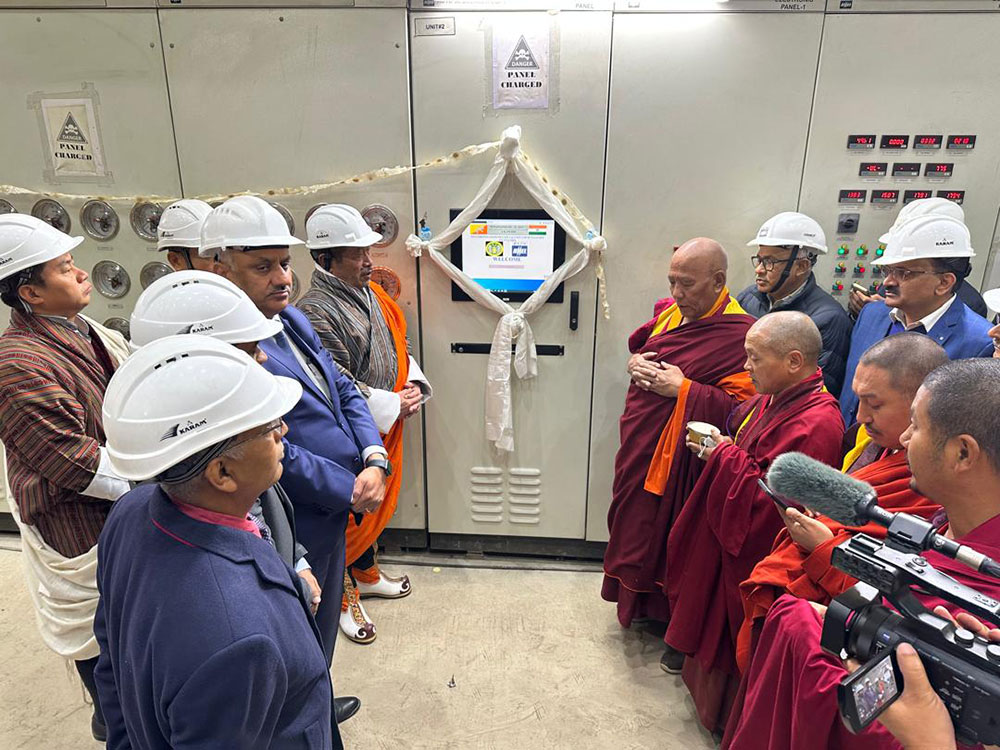Dechen Dolkar
The 1,020 MW Punatsangchhu-II Hydroelectric Project (PHPA-II) successfully synchronised two units of 170 MW each with the national grid on December 17.
Following the synchronisation, mandatory Grid Code tests are underway, with completion expected in a few days.
Once the tests are completed, the Bhutanese System Operator will issue the Commercial Operation Date certificate. Until then, any power supplied to the grid will be classified as infirm energy, meaning that electricity is injected into the grid before the commercial operation of a unit or block of the generating station.
An official from the Ministry of Energy and Natural Resources said that the units will not operate at full capacity immediately. Instead, the loading of machines will begin gradually, starting at 20 MW per unit.
“Each generating unit has an installed capacity of 170 MW and is expected to produce 4.3 million units of electricity per day once fully commissioned,” the official said.
With the commissioning of these two units, Bhutan’s hydropower generation during the lean season is expected to improve, reducing the country’s dependency on power imports from India.
Efforts are now focused on completing the remaining four units by 2025.
Testing and commissioning of the two turbines began in August 2024 but had to be suspended due to water seepage in the powerhouse.
The water-conducting system was dewatered and inspected by experts, following which grouting and penetron coatings were applied to the surge shaft and head race tunnel, which resolved the issue.
The official also stated that tariff discussions between the governments of Bhutan and India are at an advanced stage and are expected to conclude soon.
Synchronisation of the units enables electricity transmission to India, marking a major milestone in the project’s development.
Once all six units are commissioned by 2025, the project will increase Bhutan’s installed power generation capacity to 3,465 MW.
A ceremony was held at the project site to commemorate the synchronisation, attended by the Minister for Energy and Natural Resources, Gem Tshering, along with senior ministry officials, dzongkhag representatives, project management officials, and contractors.
The PHPA-II, a joint venture between the governments of Bhutan and India, began in 2010 with an initial estimated cost of Nu 37 billion. The total project cost is now estimated at more than Nu 94.45 billion.
Bhutan and India share a long-standing partnership in the hydropower sector. To date, both governments have collaborated on four major hydropower projects, including the 336 MW Chhukha HEP, 60 MW Kurichhu HEP, 1,020 MW Tala HEP, and 720 MW Mangdechhu HEP, with a combined capacity of 2,136 MW.


